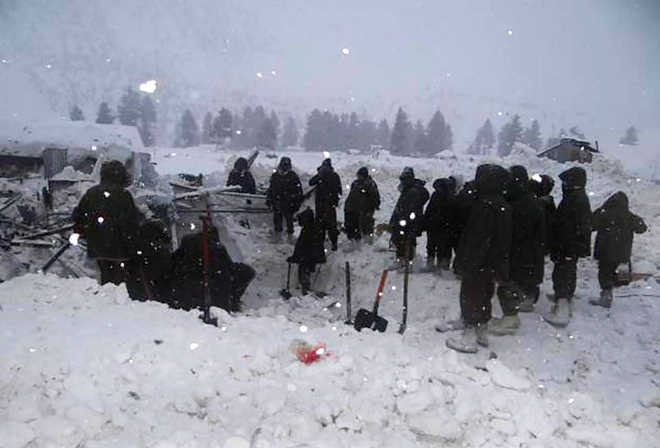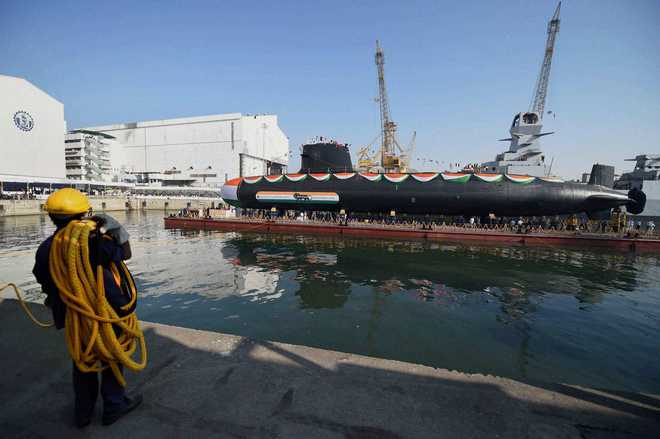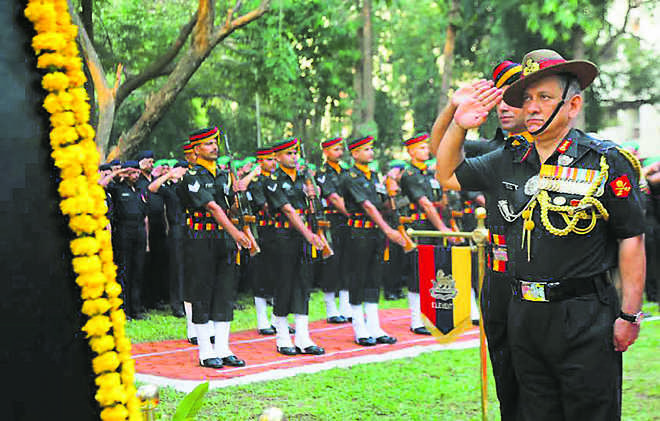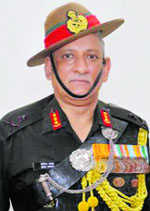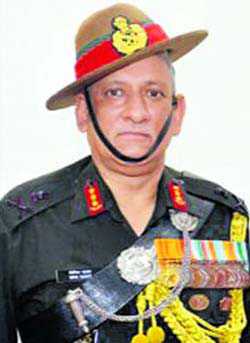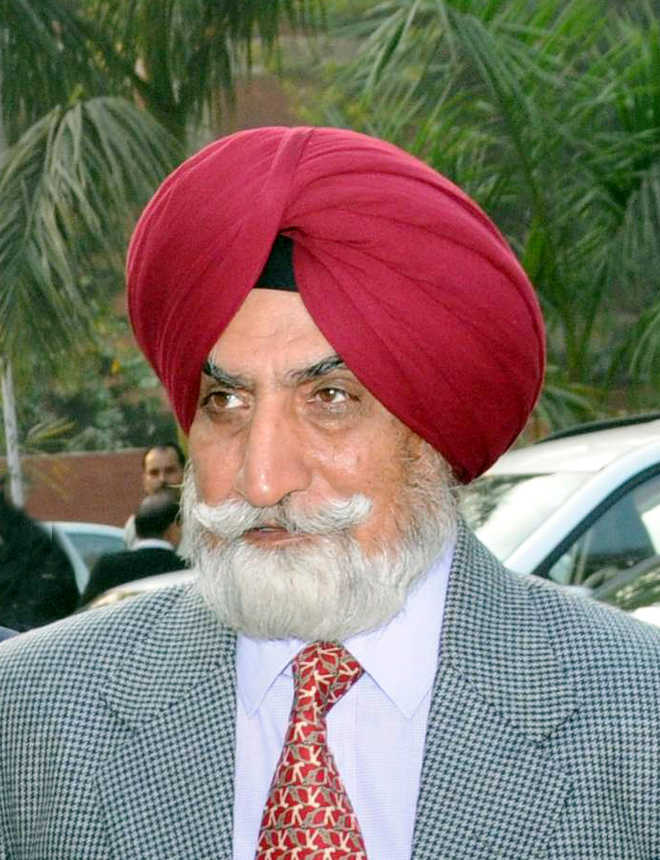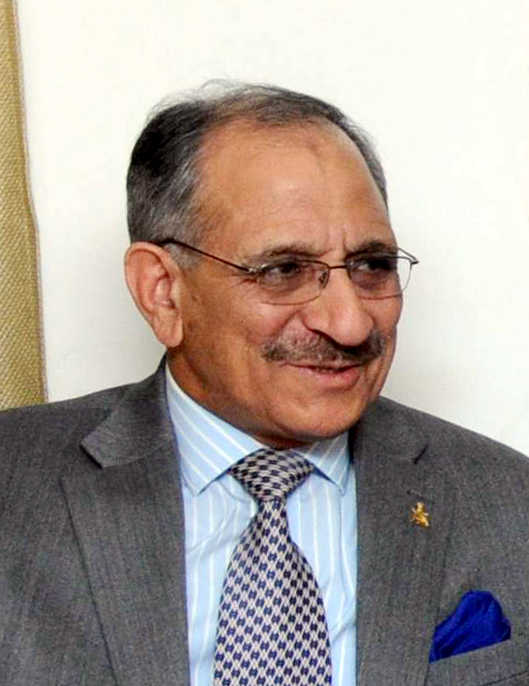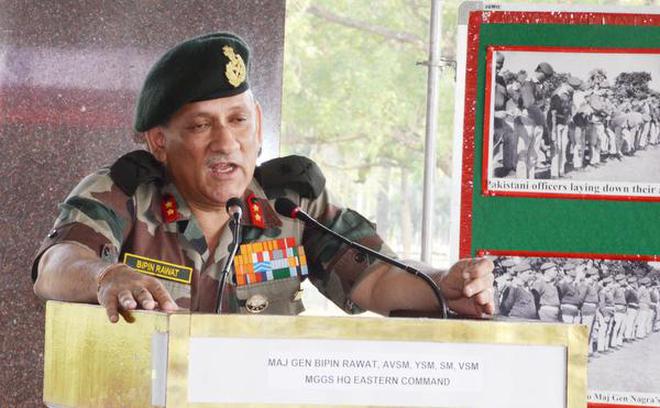
At the outset, Lt. Gen. Bipin Rawat must be congratulated upon being appointed as the next Chief of the Army Staff. His rich experience, exposure and hoary regimental traditions will stand him in good stead as he assumes the mantle.
Lt. Gen. Rawat’s challenges are many. The most daunting will be to unite the institution, underlining a single ethos against the diverse aspirations of soldiers. He has the potential and time to do this.
Supersession of two very competent seniors for the appointment was bound to cause anguish and evoke strong reactions — not just about the abrogation of the rightful claims and expectations of the two officers but, more importantly, on the impact it would have on the apolitical nature of the Army. To this end, the elaborate justifications put forth on the part of the establishment and certain voices from the so-called strategic community have been unhelpful, and that is worrying.
The government’s prerogative to appoint the person who it considers most suitable in these circumstances, as has been done, is unfettered. But it should have been accompanied by transparency and logic.
Ability and seniority
In a hierarchical structure such as in the Army, command authority is based on the twin planks of superior professional ability and seniority. So far, the principle of selection has been seniority-cum-merit unless there are compelling reasons to select otherwise. The selection is made from amongst serving Army Commanders and the Vice Chief of the Army Staff. The process involves filtering through over 37-38 years of national service. The basis for elevation are personal qualities, demonstrated performance and potential for next rank. Only one or two reach that position from a full-year batch. This is unlike any other system and therefore the merit factor is a given.
Against this backdrop, there are four larger issues, all rooted in the existing operational and functional ethos that the selection raises. They need to be addressed.
First, do the personal capabilities and experience of the person being selected completely overwhelm those of Lt. Gen. Praveen Bakshi and Lt. Gen. P.M. Hariz? After all, Lt. Gen. Bakshi is commander-in-chief of the Eastern Command, operationally pitted against a silent but ubiquitous Chinese threat alongside an insurgency that refuses to be quelled. He dealt with Samba and Jammu infiltration situations as a Corps Commander. For his part, Lt. Gen. Hariz has a reputation for his penchant for concepts.
Basis for evaluation
What, therefore, is the basis for a comparative evaluation and from where should it start? If it was so relevant, why was this not done earlier? Incidentally, the officers are never consulted in their growing-up years on what qualities they need to possess to become suitable to lead the institution. Therefore, how will the present set of formation commanders in peace formation, stationed for deterring war, react after hearing that all things being equal, their future aspirations can only be addressed by acquiring the experience of handling counter-insurgency operations? Or how will the officers serving in the Eastern Command react to being told that their own commander-in-chief’s experience is simply not good enough?
An officer’s career graph and experience are never of his own choosing. They follow a trajectory determined by the Military Secretary’s branch, and the officer can only accumulate experiential moss to the extent that he is allowed by the opportunities given to him. He has no choice. If the argument of not having the right experience is raised against a senior officer, to what extent is the affected officer liable for the same? Should he pay a price for being deprived of a posting that matches up to future requirements?
The second and more serious question that arises relates to the future battle space as visualised by the government and understood from the justifications of supersession. Would threats the nation faces remain static in the near term and at the ground level? If they change, then what? What if they change during the designate’s tenure?
Of late we have been talking of jointness, joint forces and joint responsibilities to attack the centre of gravity to produce desired effects. Can this ever work if the government of the day decides on a specialisation in the secondary field as the parameter for selection at the highest level? Can such a proposition ever attract talent in joint forces, which is still away from the main line of work?
Expectations of the government
The third question relates to the expectations of the government from its Army Chief. Is his role to provide overarching guidance and oversight to tactical-level operations or does he have a larger charter to prepare for battles that will hopefully never be fought? Is not all-around experience to be recognised as an attribute for selection?
And finally, to return to the principle of seniority-cum-merit that has so far stood the test of time, for a solution. The reason why the defence forces have remained apolitical so far is that this principle annulled any need to develop political patronage in spite of political control. If this continues, the days are not far when rising stars of the armed forces will seek to curry political favours both through internal and external mechanisms for ticket punching to ensure that they get their due.
Either way, the apolitical fabric stands tattered and torn.
The net impact of this unusual selection and supersession is that a narrow tactical advantage has been seized by short-changing the needs of a comprehensive all-round perspective and understanding of future wars. This needs to change and change immediately.
Anil Chait is former Chief of Integrated Defence Staff.
*SCOUT NUMBER ONE FIRE KAHAN SE AYA*
This Army Chief controversy is getting too far for my liking. Good people being over looked, senior people being sidelined, politics entering the military arena etc appear to be dangerous trends.
I wrote yesterday, that once the decision has been taken to appoint a person it needs to be respected. Today, I want discuss the merit of the people who selected my Army Chief. Just because they happened to get some votes due to a wave in the country, are they capable enough to decide who is going to head a professional force called the Army, Navy or the Air force? Are they worthy enough to make such a selection? Are they educated enough to appoint such outstanding and professionally competent gentlemen. Are they capable enough to understand what it takes to run an disciplined organisation which is now getting political due to meddling of these dhotiwalas and babu’s unfortunately? Are the people who sat in decision to appoint them competent to judge an officer who has gone though a filtration process from a 2Lt stage? Well ladies and gentlemen, we have to appear in Part B, and D exams to start with. Leave alone Staff College and the other colleges like HDMC, LDMC, NDC etc. The Chief designates are M Phils and Doctorates in their professions and they are appointed by people who may be most uneducated but now are honourable members of our parliament. They are appointed by people who waste complete sessions of parliament in the name of democracy and at the cost of tax payer’s money. My Chief’s are appointed by people who have charges of rape, murder, loot and corruption in their names. How sad! How unfortunate! How regretful! But this is how the system goes. This is called democracy.
Please let me know the merit of our PM. Well I shall grant him this much that he rose from the grassroots, and worked hard to be a CM of a state three times. Irrespective of the state he belonged to, if he could effectively run his state, he can run the country too, so I grant him his due. Now is my question to him, does he know Kashmiri, does he understand Nagamese, can he speak Jharkhandi, the answer is no. But is he capable of taking a decision at a national level for each of our 29 states & 7 Union Territories, the answer is yes. Therefore, our Chief could be from the Armd Corps, Mech Inf, or any other arm, once you have been indoctrinated in the fire, once you have gone through your command and staff paces, once you have been made to undergo training at the best institutions of the world, aren’t you capable of holding a baton of an Army Chief. The bureaucrats can serve the Defence ministry or the ministry of Animal husbandry and still rise to become a Chief Secretary. He is part of the selection committee which appoints the Service Chief, isn’t it a little appalling. A person who doesn’t know which side a gun fires, is capable of appointing a person who has so many guns under his command which if fired would pulverise the enemy to dust.
Let us talk about dress the person selecting wears. Invariably he is in chappals, sandals and casuals. A person who can’t salute back properly, or acknowledge a salute at a function like launching a ship, where the Admirals are in their full finery with medals and swords, a man casually walks in without headgear and half sleeves shirt. How pathetic? How uncouth I would say. A person who may know the principles of aerodynamics being an engineer but can he fly a plane or direct fire of artillery. He may know a little what it takes to handle a large crowd because he has been a CM, but does he know how the logistics of an armed formation is worked out. Does he know how a soldier fights till the last man last round? Does he understand how that last round is supplied to the first man in the trench? Does he know the importance of a Scout who hears the first shot being fired at his patrol? Does he know fire kahan se aya? Does he understand “Dauro, leto, rengo, aar pakro, fire karo”? Does he know “chiezen kyon dikhti hain” in fact does he understand the 6S and 1M.
Believe you me all these things are not required at the level of the Army Chief, least for a defence minister? They are there to deploy nuclear weapons; to plan National Strategy. They are there to think about the future of the forces. The COAS is there to advise the Supreme Commander on what is needed to keep India safe. He is there to ask from the government what he needs to keep India safe. Does the defence minister know what is “one up” or “staggered line ahead”? Can he do any of the hand signals except rubbing his hand on his tummy to say he is hungry? Well let me not get into basics. Such esteemed gentlemen as our Chiefs have done their “mai baap parades”, “make and mend parades”, “first parade”, “halt parade” and “last parades” umpteen times. They have lived in and counted bunkers, they have marched in the hills and deserts, they have dealt with track sheds and tanks falling in blind wells, they have led various EVC & IRG columns, they have made missile bases, they have deployed surveillance grids for formations, they have made bridge heads across DCBs and canals, they have floated in many a rivers, they have deep forded in riverine terrain, they have served in high altitude, they have para jumped, they have served in UN missions in various capacities, they have guided people fighting asymmetric warfare and they are selected by people who don’t even know what I am talking about.
The maximum noise has been made by Rahul baba and his party spokespersons, bhaiya please pick up a “papplu” of commando wing, friends give him a four KG danda to balance it and then tell him to do his pad yatra in UP. Bhaiya ji, wear your dhoti and go to the glacier, I hope you know where it is. No no you got it wrong it is not in Switzerland, I am talking of Siachen, arey don’t confuse with Aksai Chin of Hindi Chini Bhai Bhai fame. O hell, no baba not your double chin yaar. Forget it, you won’t get it ever and you are dreaming of leading this country. Sorry to be so mean with my words, please baba leave politics, as whatever you say sounds more like a joke. People laugh at you. You have the young Scindia, Pilot, etc who can handle things far better than you. The image of your party is getting murkier more you open your mouth. You have no business to oppose the decisions of the government just to politicise them. You guys got the boot in the last elections and if you continue the way you are going you may be given the second boot too. Armed forces are a serious matter and we don’t get up at night early in the morning like you say. We fight all day and all night till our enemy is annihilated.
The first man to contact the enemy is the scout, and if he pin points the enemy correctly, and tells his commander FIRE KAHAN SE AYA, the commander will be able to make a quick plan, deploy his support weapons, assault & defeat the enemy. Same goes for the Chiefs too, irrespective of the arm they belong to, irrespective how asymmetric the warfare is, irrespective of the swords of honours they have got or not got. All of them are far-far more capable to carry out the duty of the COAS.
I wish Gen Rawat the best again, Sir please beware. I hope you don’t fall prey to the Political fire, as no one will be able to tell you fire kahan se, kyon aur kab aya? Do you get my message hidden within these two lines, I wonder!!!!!!!!”
